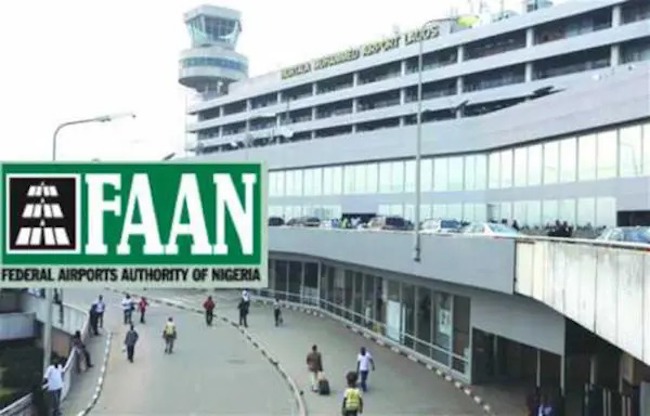The simmering tension between aviation workers and Nigeria Customs Service operatives at the Murtala Muhammed Airport in Lagos, Nigeria, has reached a critical point, threatening to disrupt air travel. The heart of the dispute lies in recurring clashes between the Federal Airports Authority of Nigeria (FAAN) and customs officials, marked by allegations of harassment and assault against airport staff. The most recent incident, involving an alleged attack on the Director of Aviation Security Services, Igbafe Afegbai, by customs officers, ignited outrage among aviation workers and spurred the threat of a nationwide strike.
Three major aviation unions – the Air Transport Services Senior Staff Association of Nigeria (ATSSSAN), the National Union of Air Transport Employees (NUATE), and the Association of Nigerian Aviation Professionals (ANAP) – have united in their condemnation of the customs officers’ conduct. They initially issued a 14-day ultimatum demanding the redeployment of the Controller of the Murtala Muhammed Area Command of the customs, along with all officers implicated in the alleged assault on the AVSEC director. Furthermore, the unions called for a reassessment and clarification of the customs’ role within bonded warehouses at the airport, urging alignment with international standards. This ultimatum, however, went unheeded, forcing the unions to issue a subsequent seven-day ultimatum, which also expired without a resolution.
As the deadline for the threatened strike loomed, the Managing Director of FAAN, Mrs. Olubunmi Kuku, intervened, appealing to the unions to extend their deadline and allow time for dialogue and resolution. This plea prompted the unions to grant a one-week extension, demonstrating a willingness to engage in peaceful negotiation. Simultaneously, FAAN initiated discussions with the Controller General of the Nigeria Customs Service, Adewale Adeniyi, to address the underlying issues fueling the conflict. These parallel efforts underscore the seriousness of the situation and the desire to avert a potentially crippling strike.
The core demands of the aviation unions revolve around two key issues: accountability for the alleged assault on their colleague and a clearer definition of customs’ operational boundaries within the airport environment. They argue that the recurring clashes stem from an ambiguous understanding of the respective roles and responsibilities of FAAN and customs officials, leading to friction and, in some cases, physical altercations. The demand for the redeployment of the customs controller and implicated officers reflects the unions’ insistence on accountability for the alleged assault, while the call for a review of customs’ roles within bonded warehouses aims to prevent future conflicts by establishing clearer operational boundaries.
The FAAN management, recognizing the potential disruption a strike could cause, has taken proactive steps to address the unions’ concerns. Mrs. Kuku’s appeal for an extension demonstrates a commitment to finding a peaceful resolution. Her direct engagement with the Controller General of Customs signals a recognition of the need for high-level intervention to address the systemic issues at play. Furthermore, FAAN’s engagement with the National Security Adviser’s office highlights the national security implications of a potential aviation shutdown.
The aviation unions, while resolute in their demands, have also shown a willingness to engage in dialogue. Their acceptance of the FAAN MD’s plea for an extension indicates a desire to resolve the matter amicably. However, they have made it clear that this is their final extension, and if their demands are not met within the stipulated timeframe, they will proceed with the planned industrial action. This firm stance underscores the urgency of the situation and the need for a swift and decisive resolution to avert a potentially damaging strike. The coming days will be crucial in determining whether dialogue can prevail and a compromise can be reached, or whether the aviation sector will face disruption.














